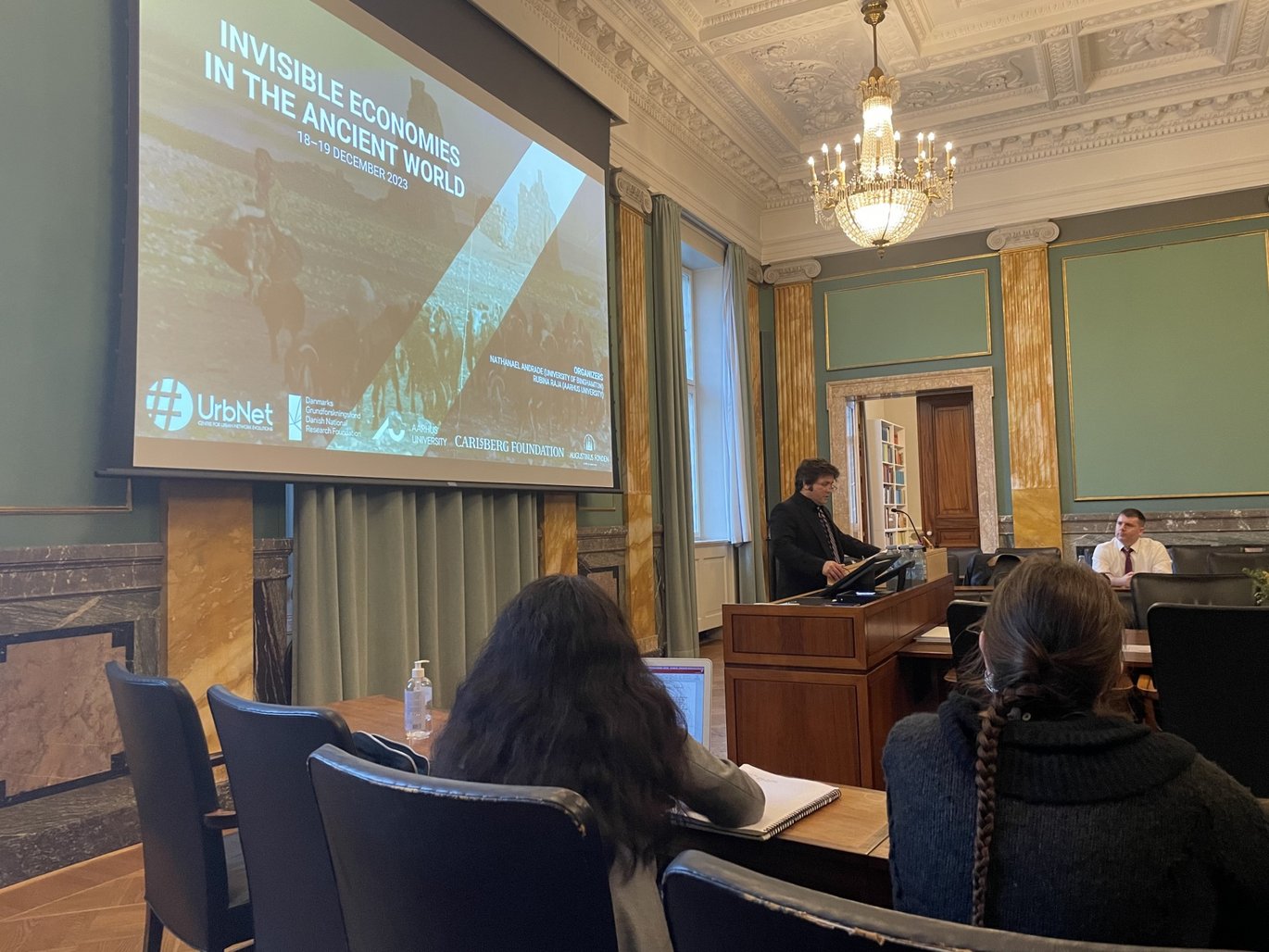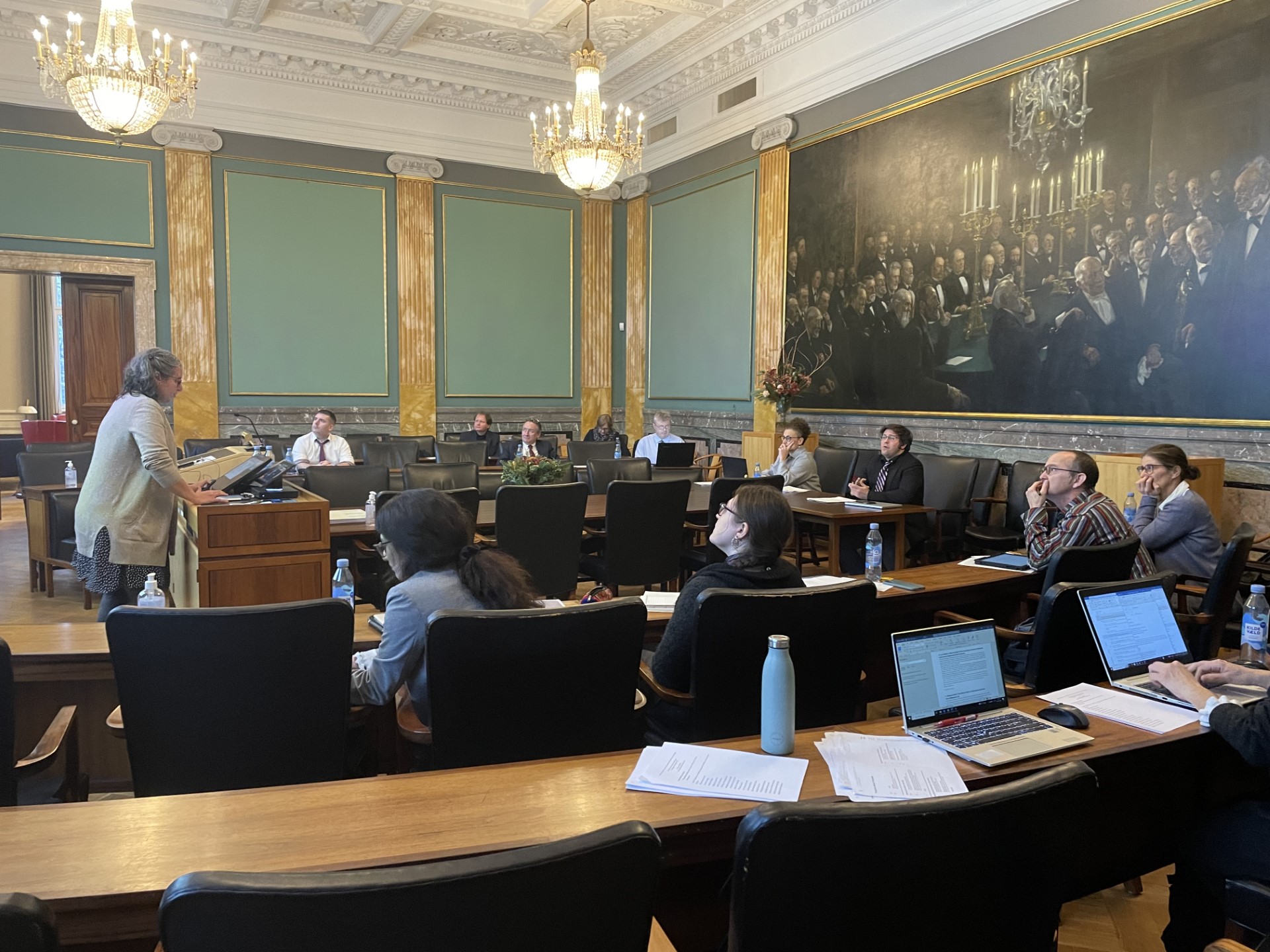Invisible Economies in the Ancient World
Summary of the Invisible Economies conference in December


Summary:
On 18th and 19th December 2023, the conference Invisible Economies in the Ancient World, organized by Professor of History Nathanael Andrade (University of Binghamton) and Professor of Classical Archaeology and Centre Director Rubina Raja (Aarhus University), took place at the Royal Danish Academy of Sciences and Letters, Copenhagen.
The two-day conference sought to uncover hitherto overlooked aspects of the ancient economy from the point of view of the ‘invisible’ actors of ancient society; rural peasants, nomads, the enslaved, labourers, and vendors. The participants highlighted the influence of these largely invisible individuals on economic structures and patterns in local, regional, and global contexts.
After a short introduction by Nathanael Andrade and Rubina Raja, the first panel of the conference focused on the dynamics of caravan trade, emphasizing the often-overlooked contributors and effects beyond merchants and organizers. Next, a panel considered the concept of cultural capital, examining economic decisions made for status or accomplishment rather than simple wealth accumulation, as well as the cultural factors that shaped economic decision-making or mobility in ancient societies. Rounding up the first day, the third panel explored rivers as environmental pivots of economic life.
The second day began with a panel addressing dry steppes and deserts, and how humans have responded to them with pastoral and nomadic practices, challenging the stereotypes and assumptions usually associated with the people of such environments. Following this, the fifth panel focused on religion and religious economy, interrogating the relationship between religious practice, economy, and social reciprocity. The final panel explored contexts of sown agriculture through archaeological, archaeobotanical, and hagiographic sources, examining the lives of those engaged in agricultural and pastoralist practices.
The two-day conference was a success that truly testifies to the importance of looking closer at the interconnected relationships among visible and less visible players of the ancient economy. Furthermore, it was a pleasure to engage in highly intriguing scholarly discussions following the many exciting papers. An edited volume with the proceedings of the conference is planned for publication later. A huge thank you to all the speakers and all the participants.
Written by: Mette Lang
